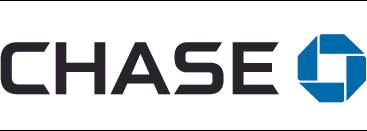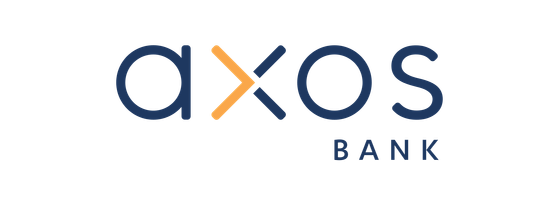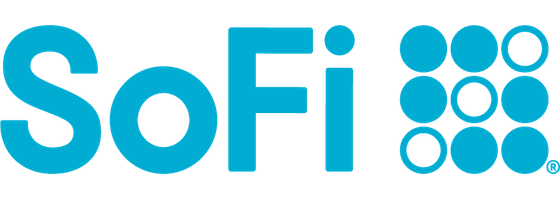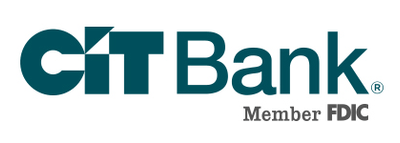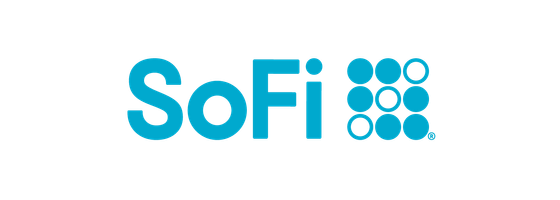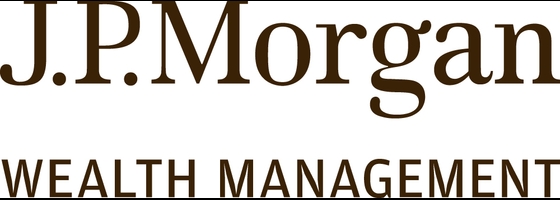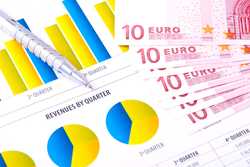Chase Bank is the largest bank in America and has operations across the country and around the world. While its deposit accounts pay mostly lackluster interest and charge more and higher fees than much of the competition, it’s an excellent banking choice for consumers with very specific financial needs.
What are those needs, and how does Chase Bank meet them? Read on to find out.
Who is Chase Bank for?
In reviewing the products offered by Chase Bank, it doesn’t present as “every person’s bank.” This is because the bank pays lower interest rates and charges more and higher fees than much of the competition.
However, because of its size and wide range of financial products, Chase can be a natural banking choice for many consumers. For example, if you have a home loan and one or more credit cards with Chase, you may want to open a checking account with it.
Similarly, if you run a business and either handle your business banking through Chase or want to trade up to a full-service business bank, you may want to open one or more personal accounts there as well.
Finally, Chase is an excellent choice if you regularly engage in international transactions, whether for personal or business purposes. This is because Chase is a global financial institution with many years of experience with international transactions. For example, not all (or even most) banks and credit unions can accommodate international wire transfers, Chase can.
In short, Chase is an excellent bank to work with, but not for the usual reasons (high interest and low fees) consumers choose a bank.
Review of Chase Bank checking accounts
As the largest bank in America, Chase offers many different checking accounts. We’re going to focus on three of the most popular: Total Checking, Secure Banking and Premier Plus Checking.
Chase Total Checking is the bank’s most popular checking account. It’s a non-interest-bearing account that requires no minimum deposit to open. The account comes with Chase Overdraft Assist, which means there’s no overdraft fee if your account is overdrawn by $50 or less at the end of the business day or if you’re overdrawn by more than $50 and bring it to $50 or less at the end of the next business day.
The account also comes with Zelle, Online Bill Pay, and account alerts. Chase is currently offering a $300 sign-up bonus for new Chase customers when you open a Chase Total Checking® account and make direct deposits totaling $500 or more within 90 days of coupon enrollment.
The account has a $12 monthly service fee, which can be waived with 1) electronic deposits of at least $500 per month, 2) a balance at the beginning of each day of $1,500 or more, or 3) an average beginning day balance of $5,000 or more plus any Chase qualifying deposit or investment accounts.
Chase Total Checking®
Monthly fee
$12 ($0 with qualifying activities); $34 NSF Fee
Chase Secure Banking℠ is also a non-interest-bearing checking account, but it comes without paper checks. The account has a fixed monthly fee of $4.95 but does not charge overdraft fees. There is no minimum deposit to open it.
Chase Secure Banking℠
Monthly fee
$4.95 or $0; Avoid the monthly service fee when you have electronic deposits made into the account totaling $250 or more during each monthly statement period; $0 NSF Fee
Overdraft fees
No overdraft fees
Chase Premier Plus Checking is an interest-bearing account that currently pays 0.01% annual percentage yield (APY) on all balances. There is no minimum opening deposit required. Like Chase Total Checking, the account comes with Chase Overdraft Assist, Zelle, Online Bill Pay, and account alerts. You’ll also receive reimbursement for non-Chase ATM fees four times per statement period.
Premier Plus has a $25 monthly fee, which can be waived if you 1) maintain an average beginning day balance of $15,000 or more and have Chase qualifying deposit or investment accounts, or 2) you have a qualifying Chase first mortgage enrolled in automatic payments from your account, or 3) you are a current service member or veteran of the U.S. Armed Forces with a qualifying military ID.
Chase Premier Plus Checking
ATM Fees**
Reimbursement for non-Chase ATM fees four times per statement period
*APY is subject to change
**Waived if you 1) maintain an average beginning day balance of $15,000 or more and have Chase qualifying deposit or investment accounts, or 2) you have a qualifying Chase first mortgage enrolled in automatic payments from your account, or 3) you are a current service member or veteran of the U.S. Armed Forces with a qualifying military ID.
Chase checking: Pros & cons
Pros:
- No minimum opening deposit is required on any of the above checking accounts.
- Total and Premier Plus checking accounts offer Overdraft Assist to help customers avoid overdraft fees.
- New Chase checking customers enjoy a $300 bonus when you open a Chase Total Checking® account with qualifying activities
Cons:
- Two of the accounts pay no interest, and the one that does pays only 0.01% APY.
- All three accounts have monthly service fees with a fee waiver capability that may be difficult to achieve consistently.
Time's Take
We don't recommend them because there are checking accounts offered by competitors that not only pay higher interest but also charge no monthly service fee.
|
| Sofi Online Checking Account |
| 0.50% (though Up to 4.00% APY with direct deposit or $5,000 or more in qualifying deposits during the 30-day evaluation period.) |
| |
| |
| |
Review of Chase Bank savings accounts
Chase offers two savings accounts: Chase Savings and Chase Premier Savings.
*APY subject to change.
**1. The account has a balance at the beginning of each day of $300 or more. 2. Total Autosave or other repeating automatic transfers from a Chase checking account amount to $25 or more. 3. A Chase College checking account is linked to Chase Savings for overdraft protection. 4. There is an account owner who is under 18 years old. 5. The account is linked to a Chase Premier Plus, Chase Sapphire, or Chase Private Client checking account.
Chase Savings currently pays 0.01% APY on all balances. There is a $5 monthly service fee that can be waived if conditions are met**.
Chase Premier Savings
APY*
0.01% to 0.02% on all balances
*APY subject to change.
**Waived with a balance at the beginning of each day of $15,000 or more or when the account is linked to a Chase Premier Plus or Chase Sapphire checking account.
Chase Premier Savings currently pays interest of between 0.01% and 0.02% APY. There is a $25 monthly service fee that can be waived with a balance at the beginning of each day of $15,000 or more or when the account is linked to a Chase Premier Plus or Chase Sapphire checking account.
Chase savings: Pros & cons
Cons:
- Two of the accounts pay no interest, and the one that does pays only 0.01% APY.
- All three accounts have monthly service fees with a fee waiver capability that may be difficult to achieve consistently.
Time's Take
We don’t recommend them because of the combination of nearly nonexistent interest with monthly service fees are negatives. There are better savings accounts available with competitors.
|
| CIT Bank Platinum Savings | |
0.01% to 0.02% on all balances | | Up to 4.00% APY with direct deposit or $5,000 or more in qualifying deposits during the 30-day evaluation period. |
| | |
| | |
Review of other Chase Bank certificates of deposit (CDs)
Chase offers CDs with terms ranging from one month to 120 months. CDs require a minimum of $1,000 to open.
The most attractive CD terms are as follows:
|
| | | |
| | | |
| | | |
| | | |
| | | |
30, 42, 48, 60, 84, 120 months | | | |
Chase does offer other CD terms, but the interest rates range between 0.02% and 0.05% APY.
Chase CDs: Pros & cons
Pros:
- Competitive rates on the three-, six-, and 12-month CDs, especially on balances of $100,000 or more.
Cons:
- Higher rates on CDs are available with other institutions.
Time's Take
We don’t recommend them because Chase generally pays less interest on its CDs than the competition does, with the exception of the six-month CD paying 5.00% APY on balances of $100,000 or more.
Chase money-market accounts
Chase does not offer a money market account (MMA) at this time. You can see which other institution offers the highest rates here.
Other Chase financial products
Chase credit cards
Chase credit cards are know to be amongst the best in the industry. Chase offers credit cards for various consumers to fit their financial needs. These include travel rewards, everyday spending, business, balance transfer, amongst more categories.
|
| | | |
| | | |
| | | |
| | | |
| | | |
balance_transfer_intro_apr,balance_transfer_intro_duration | balance_transfer_intro_apr,balance_transfer_intro_duration | balance_transfer_intro_apr,balance_transfer_intro_duration | balance_transfer_intro_apr,balance_transfer_intro_duration |
All information about the Chase Slate Edge has been collected independently by TIME Stamped.
Chase Home and Auto Loans
Chase offers various types of loans for home and car buyers. These include first, second, and experienced homebuyers, mortgage for purchase and refinancing, HELOC, home improvements, debt consolidation and more. Chase also provides online tools to estimate rates and payments as well as other resources to help consumers better manage their payments.
Chase Investing
Investing by J.P. Morgan, offer both Self-Directed Investing and Personal Advisors.
Review of Chase Bank features
ATM network
Chase Bank offers a network of more than 15,000 ATMs where you can take advantage of fee-free transactions.
Fees
Apart from monthly service fees, Chase Bank charges the following fees:
- Non-Chase ATM fees. $3 at U.S. locations and $5 outside the country.
- Overdraft fees. $34 per transaction that overdraws your account by more than $50, with a maximum of three fees per business day ($102).
- Foreign exchange rate adjustment. 3% of withdrawal amount after conversion to U.S. dollars.
- Domestic and international incoming wires. $15 ($0 if the transfer was originally sent with the help of a Chase banker, using the Chase mobile app, or on chase.com).
- Domestic wire (send). $35.
- Online domestic wire (send). $25.
- Consumer USD/F international wire. $50. ($40 when using chase.com or the Chase mobile app to send a wire in U.S. dollars.)
- Consumer online FX international wire (send). $5 for transfers of less than $5,000; $0 for transfers of $5,000 or more.
- Stop payment. $30 ($25 if done online or by automated phone process).
- Early withdrawal fees for CD terms of less than six months. 90 days of interest, not to exceed the total interest earned on the CD.
- Early withdrawal fees for CDs of six month to less than 24 months. 180 days of interest, not to exceed interest earned on the CD.
- Early withdrawal fees for CDs of twenty-four months or more. 365 days of interest, not to exceed interest earned on the CD.
Security
Chase offers a full suite of security features to protect both your information and your money. The bank provides continuous fraud monitoring as well as zero liability protection, so you will be reimbursed for unauthorized debit card transactions. You can also lock and unlock your debit card and activate account alerts to stay updated on account activity.
Chase uses 128-bit encryption technology to protect your personal information online or on the mobile app. You can also choose to take advantage of two-factor authentication, where a phone call or text will be sent to your mobile device with a code if you are attempting to access the banking platform from an unrecognized device.
All deposit accounts held with Chase Bank are insured by the Federal Deposit Insurance Corporation (FDIC) for up to $250,000 per depositor.
Customer service
For personal banking, Chase can be contacted by phone at 800-935-9935, though it does not provide days and hours of contact. You can also reach customer service by email through the Chase online or mobile banking platforms using the Secure Message Center.
If you prefer face-to-face contact and live in an area where Chase operates, you can visit a local branch.
UI/technology
In addition to its network of branches and ATMs across the country, Chase Bank is also available through online and mobile banking. Both can be used to check account balances, monitor transactions, transfer funds between accounts, pay bills, and make online or mobile deposits.
You can also use online and mobile banking to set up the Autosave feature to help you make regular transfers from your checking to your savings account, as well as manage your budget by tracking spending. Chase also offers Credit Journey to help you manage, monitor, and protect your credit by accessing regular credit score updates.
Online and mobile platforms can also enable you to invest with J.P. Morgan Wealth Management, using either Self-Directed Investing or Personal Advisors services.
featured partner
featured partner
J.P. Morgan Self Directed Investing
Online trading fees
$0 stock & ETF trades; $0.65/contract options trades; $0 mutual funds trades
Promotion
Get up to $700 when you open & fund an account with qualifying new money. Offer expires 4/15/2025.
INVESTMENT AND INSURANCE PRODUCTS ARE: NOT A DEPOSIT • NOT FDIC INSURED • NO BANK GUARANTEE • MAY LOSE VALUE
Chase also offers Zelle for sending and receiving money to and from individuals at no fee.
More about Chase Bank
Who owns Chase Bank?
Chase Bank is owned by J.P. Morgan Chase, which is a publicly traded company listed on the New York Stock Exchange with the ticker JPM. J.P. Morgan Chase is a financial institution with assets totaling $3.7 trillion.
History and reputation
Chase Bank has a very long history. It started out as the Bank of the Manhattan Company in New York in 1799. In 1955 it merged with Chase National Bank, forming what was then known as the Chase Manhattan Bank. Over the years it merged with several other large banks and is now the largest bank in the United States. A combination with J.P. Morgan & Co. led to the formation of J.P. Morgan Chase, which is the company’s official name.
Chase Bank has a Better Business Bureau rating of “A+”, and a Trustpilot rating of 1.3 (bad) out of five stars based on 1,430 reviews.
The Chase Bank mobile app has a rating of 4.4 out of five stars from nearly 1.8 million Android users on Google Play and 4.8 out of five stars among more than five million iOS users on the App Store.
World presence
Chase Bank operates over 4,700 branch locations in 48 states (Alaska and Hawaii are not included). The bank also operates more than 15,000 ATMs across the country. Chase also operates 198 locations outside the US, in dozens of major cities around the world.
How does Chase Bank compare
When comparing Chase Bank with other popular banks, it quickly becomes apparent that it doesn’t attempt to outperform or even match much of the competition when it comes to interest paid and fees charged. Based on the comparison table below, the only product with which Chase leads the pack is its six-month CD, which currently pays 5.00% APY on balances of $100,000 or more.
|
| 0.01% to 0.02% APY; $25 waivable monthly fee; No minimum deposit | 5.05% APY on $5,000 and up; 0.10%APY on under 5,000; No fees; $100 minimum deposit | 4.00% APY; No fees; No minimum deposit | 0.61% APY on under $25,000; 0.25% APY on $25,000 to under $100,000; 0.15% APY on $100,000 and up; No fees; $250 minimum deposit |
| | 1.55% APY; No fees; $100 minimum deposit | 3.80% APY on under 100,000: 8.85% APY on $100,000 and up; $2,500 minimum deposit | 0.25% APY; No fees; No minimum deposit |
| 30 days to 120 months: 0.02% to 5.00% APY; $1,000 minimum deposit (See CD section above for detailed terms and rates) | Six months: 5.00% APY; 11 months: 4.90% APY; 13 months: 4.65% APY; 18 months: 4.60% APY; $1,000 minimum deposit | Six months: 3.90% APY; 12 months: 4.10% APY; 18 months: 3.80% APY; 24 months: 3.60% APY; 30 months: 3.50% APY; 36 months: 3.50% APY; 48 to 60 months: 3.40% APY; 7 to 10 years: 3.40% APY; no minimum deposit | Three to 60 months: 0.20% APY; $1,000 minimum deposit |
Self- Directed Investing (SDI) | J.P. Morgan Self- Directed Investing | | | Axos Self-Directed Trading |
| 0% APY; $12 waivable monthly fee; $25 minimum deposit; $200 sign-up bonus | Up to $25,000: 0.10% APY; $25,000 and up: 0.25% APY; No fees; $100 minimum deposit | 0% APY; 1% cash back; No fees; No minimum deposit | Up to 3.30% APY or 1.00% cash back; No minimum deposit or $50 minimum deposit; No fees |
| Credit cards; Home loans; Auto loans | | Credit cards; Home loans; Personal loans; Student loans | Personal loans; Home loans; Auto loans |
TIME Stamp: Chase Bank is best for those who need a full-service bank for multiple accounts and/or loans or business services
Chase can be a good bank to work with if you have one or more of its credit cards, a home loan, or a business banking relationship. As a full-service bank it can accommodate business and commercial accounts in a way that smaller banks and credit unions can’t. As one of the largest banks in the world, Chase can also offer international transfers and business services.
However, if you’re looking for a bank that has a compelling checking or savings account, other banks will be more suitable. Perhaps because of its size and well-earned reputation, Chase doesn’t pay the level of interest other banks do while also being heavy with fees.
Frequently asked questions (FAQs)
What is the best CD rate at Chase Bank?
The best CD rate being offered by Chase as of September 2023 is on the six-month certificate. It currently pays 4.00% APY but increases to 5.00% APY on a balance of $100,000 or more.
How long can my bank account be negative at Chase?
If your account has Chase Overdraft Assist, it can be negative until the end of the business day if the shortage is not more than $50. If it’s overdrawn by more than $50, you will need to bring the shortfall to below $50 on the next business day. If you exceed these deadlines, or if your account does not have Overdraft Assist, you’ll be subject to a fee of $34 per overdrawn item up to a maximum of $102 per day that the account is negative.
Like all banks, Chase will close your account if the negative balance remains for an extended period of time. It doesn’t specify how long that will be.
If your account is closed with a negative balance that you fail to pay off, Chase may report the situation to ChexSystems. This is something of a credit repository where banks report accounts with an unsatisfactory history and/or an open negative balance. It can prevent you from being able to open an account at another financial institution, and the bank may even take collection actions to recover the negative balance from you.
What is the routing number for Chase Bank?
The routing number of Chase Bank varies by state. There is a different routing number for each of the states where Chase operates. You can find the routing number printed on your Chase checks, online, or by using the Chase Mobile App.
SoFi Disclosures: 1. Up to $300 Bonus Tiered Disclosure:
New and existing Checking and Savings members who have not previously enrolled in Direct Deposit with SoFi are eligible to earn a cash bonus of either $50 (with at least $1,000 total Direct Deposits received during the Direct Deposit Bonus Period) OR $300 (with at least $5,000 total Direct Deposits received during the Direct Deposit Bonus Period). Cash bonus will be based on the total amount of Direct Deposit. Direct Deposit Promotion begins on 12/7/2023 and will be available through 1/31/2026. Full terms at sofi.com/banking. SoFi Checking and Savings is offered through SoFi Bank, N.A., Member FDIC. SoFi members with Direct Deposit can earn 4.00% annual percentage yield (APY) on savings balances (including Vaults) and 0.50% APY on checking balances. There is no minimum Direct Deposit amount required to qualify for the 4.00% APY for savings (including Vaults). Members without Direct Deposit will earn 1.20% APY on savings balances (including Vaults) and 0.50% APY on checking balances. Interest rates are variable and subject to change at any time. These rates are current as of 12/3/2024. There is no minimum balance requirement. Additional information can be found at http://www.sofi.com/legal/banking-rate-sheet.
2. APY disclosures:
SoFi members with Direct Deposit or $5,000 or more in Qualifying Deposits during the 30-Day Evaluation Period can earn 4.00% annual percentage yield (APY) on savings balances (including Vaults) and 0.50% APY on checking balances. There is no minimum Direct Deposit amount required to qualify for the stated interest rate. Members without either Direct Deposit or Qualifying Deposits, during the 30-Day Evaluation Period will earn 1.20% APY on savings balances (including Vaults) and 0.50% APY on checking balances. Only SoFi members with direct deposit are eligible for other SoFi Plus benefits. Interest rates are variable and subject to change at any time. These rates are current as of 12/3/24. There is no minimum balance requirement. Additional information can be found at http://www.sofi.com/legal/banking-rate-sheet.
3. Fee Policy:
We do not charge any account, service or maintenance fees for SoFi Checking and Savings. We do charge a transaction fee to process each outgoing wire transfer. SoFi does not charge a fee for incoming wire transfers, however the sending bank may charge a fee. Our fee policy is subject to change at any time. See the SoFi Checking & Savings Fee Sheet for details at sofi.com/legal/banking-fees/.


